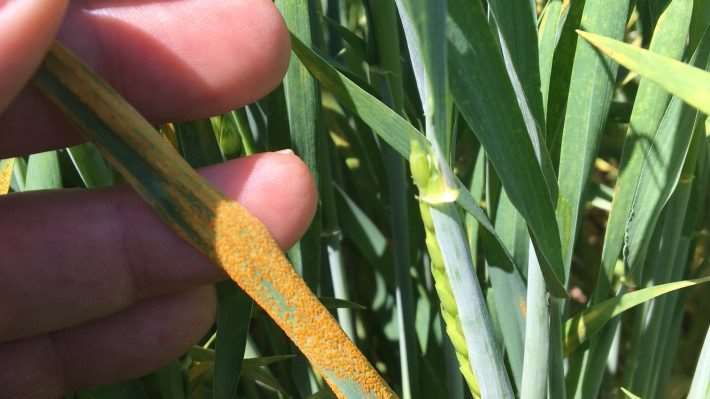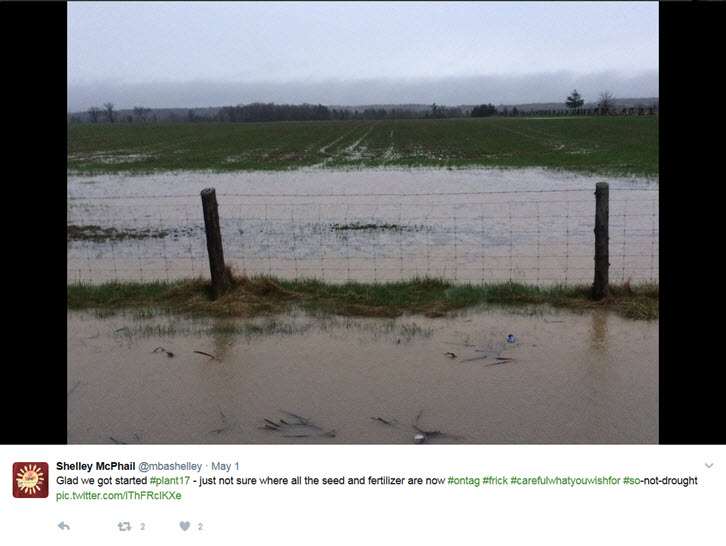Producers are encouraged to scout for diseases
By Diego Flammini
Assistant Editor, North American Content
Farms.com
Winter wheat in Ontario is between five and 10 days ahead of schedule, according to OMAFRA’s Field Crop Team.
But, with that rapid growth, also comes the possibility of disease pressure.
Last week, leaf rust was found in Bruce County and wheat spindle streak mosaic virus was confirmed in Essex County.
Stripe rust was also found on an Essex County farm, making it paramount for producers to scout field carefully.

Stripe rust.
Photo: OMAFRA
“It is important to continue scouting to determine if fungal disease infection is progressing up the plant and if a fungicide is needed,” OMAFRA said in its May 2 field crop report. “…based on last year’s experience, a preventative fungicide applied to susceptible varieties was beneficial…”
When it comes to corn, excessive moisture has delayed planting.
And with more rain in the short-term forecast, corn planters remain idle.
“Impatience is building!” OMAFRA said. “But the consequences of getting on fields too quickly can be significant. Everyone is fixated on the importance of (an) early planting date, (but forget) the statement ‘given field conditions that are fit for planting.’”

A wet field near Almonte, Ontario.
Photo: Shelley McPhail/Twitter
Current field conditions may have less of an impact soybeans than other crops.
“Early planting is less critical to yield for soybeans than corn,” the Field Crop Team said.
While waiting to plant, producers should consider seed size and its potential impact on equipment, OMAFRA said.
“Soybean seed size tends to be large this year and this has implications for planting equipment,” the report said. “Ensure that your equipment is setup to deliver whole seed effectively into the ground. A split seed will not survive.”